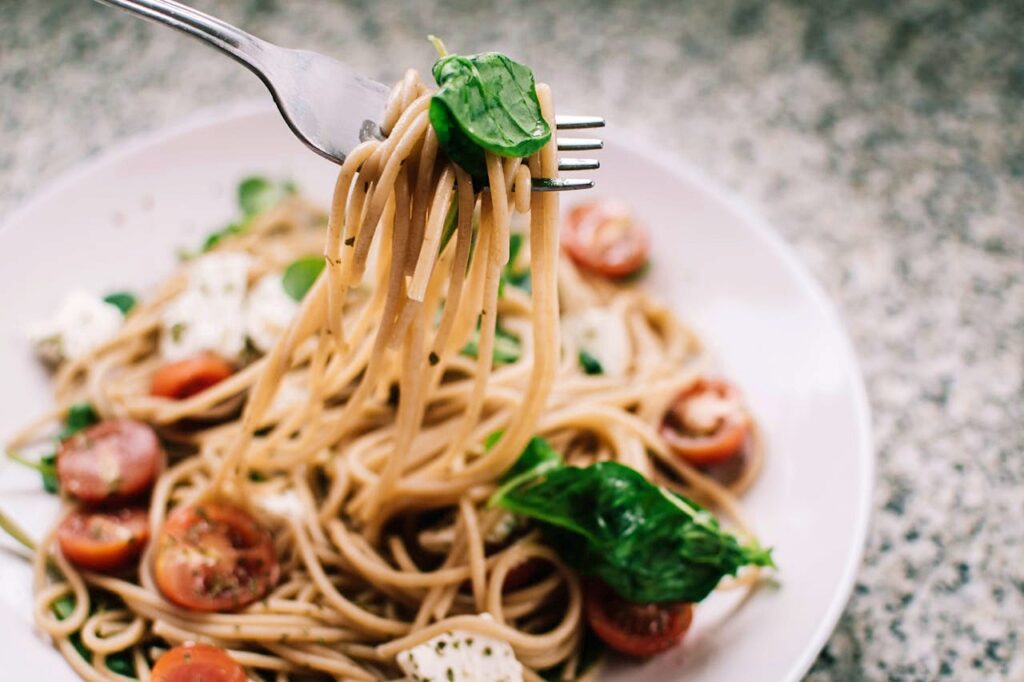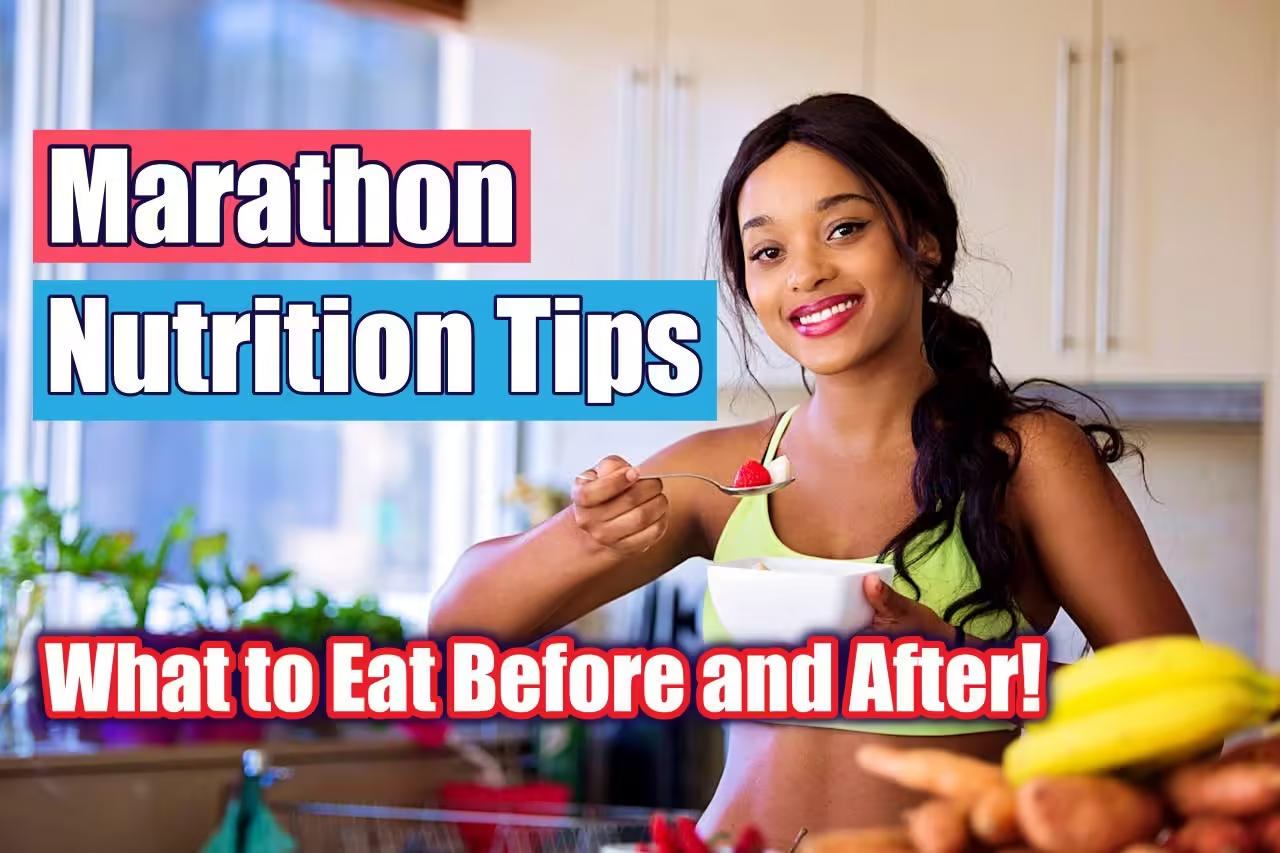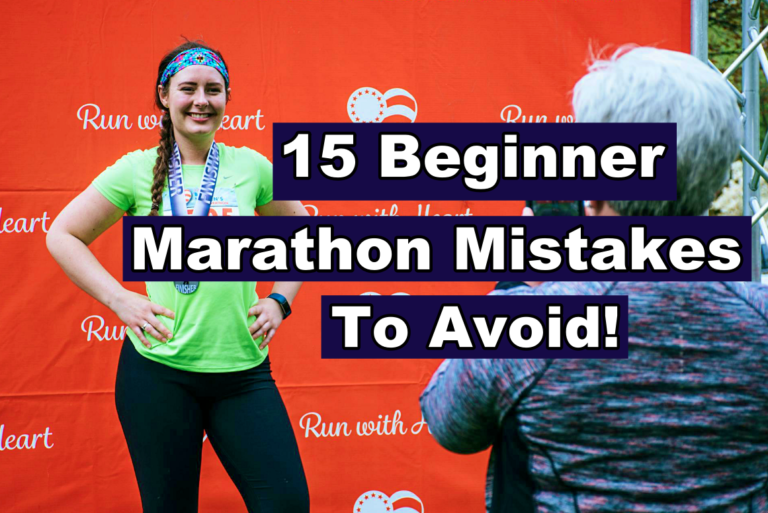Completing a marathon is a significant mental and physical achievement. However, if you want to run the marathon successfully, you need to eat well. Here are some Nutrition Tips to fuel your body before, during, and after the marathon race.
If you have ever felt like you hit a wall in the long run, That’s probably because your body ran out of fuel.
Table of Contents
What Nutrition Does a Marathon Runner Need?
The secret to the success of every marathon runner will come from a balanced combination of carbohydrates, protein, and healthy fats for training and racing energy. Carbs provide quick energy in your muscles, protein repairs and rebuilds tissue, while fats offer slow-burning fuel.
This would include a meal high in carbohydrates, and moderate in proteins, but low in fat and fibre. An example could be the following: bagel with peanut butter, oatmeal with berries, pasta with grilled chicken. Avoid anything that may be too heavy or hard to digest.
During the race, you would want to be ingesting fast-digested carbohydrates like running gels, chews, and sports drinks to maintain this energy status. Aim for 30-60g of carbs per hour.
Your body will crave refuelling upon crossing the finish line with replenishing nutrients. Give it a snack that contains carbs and protein, such as chocolate milk, a protein shake, or a sandwich with lean meat.
What is the best supplement for runners?
To support your marathon training and performance, there are a few key supplements you should consider :
- Electrolytes: Replace what you lose from sweat.
- Caffeine: Boosts energy and mental focus.
- Beetroot juice: Packed with nitrates, it can help your body use oxygen more efficiently.
- Magnesium: Can help prevent muscle cramps, especially if they tend to occur during or after long runs.
Always consult with your doctor before introducing any new supplements into your routine. And remember to try them out during training sessions to find what works best for you!
What to Eat Before The Marathon?
Before my first marathon, I learned about carb-loading the hard way. Here’s a more detailed breakdown of what to eat and when:
3-4 Days Before the Race:
- Increase Carbohydrate Intake: The body needs to be stocked with more carbohydrates so that it stores energy in the form of glycogen. Stock up on pasta, rice, potatoes, and such carbohydrate-rich foods.
- Good Hydration: Drink plenty of water such that your body is well-hydrated.

Day Before the Race:
- Lunch-Time Carbohydrate Loading: Eat a good quantity but do not overeat. Something as light as pasta with a light sauce or a rice preparation will do.
- Avoid Alcohol and Caffeine: These could dehydrate the system.
- Balanced Meal: A high carbohydrate, moderate protein, and low-fat meal.
- Smoothie: Great idea. Made from yoghurt, fruit, and a bit of honey.
- Hydration: One should drink water or an electrolyte drink, but not in excess to avoid stopping along the way to use the toilet.
- Avoid High-Fiber Foods: These could cause gastrointestinal distress during the race.
What to Eat During The Marathon?
- Staying Energized on the Run: Energy replenishment during the run is paramount. Hydrating is important, but one should not gulp down much water at a time. The following will explain in more detail what can be consumed during the race:
- Water: Take small sips at frequent intervals. Do this before you start feeling thirsty.
- Electrolyte Drinks: This will help in replacing lost salts and minerals. Look for sports drinks containing electrolytes.
- Energy Gels: Very convenient to carry and eat. Take one every 30-45 minutes with water.
- Chews or Gummies: Like gels, these are quick sources of energy and equally handy.
- Bananas or Orange Slices: Many times, these are made available at aid stations; they are great natural sources of energy.
Timing:
Try to consume carbohydrates every 30-45 minutes so that your energy level is maintained.
Avoid:
Too much consumption of sweet drinks may create stomach problems.
What to Eat After The Marathon?
The race may be over, but your body’s work isn’t. Replenishing stores right after the race is highly important. Here’s a more detailed breakdown of what and when after the marathon:
- Carbs and Protein Combo: Follow a 3:1 ratio of carbs to protein, which can help promote recovery. Banana with honey and a small handful of nuts.
- Whole grain sandwich: Lean protein such as turkey or chicken.
- Hydrate: Continue to drink water or an electrolyte drink for rehydration.
Within the Next Couple of Hours:
- Balanced Meal: Carbs, protein, and healthy fat are included. Also, brown rice, grilled chicken, quinoa salad with beans, avocado, and a source of protein.
- Ongoing Recovery: Resume normal nutrition, with an added focus on nutrition recovery and muscle repair.
Expert Tips for Marathon Nutrition
One of the best tips I received was to train your nutrition. Never try new foods on race day that your body does not know. Here are some more tips and facts to remember:
Test foods during training:
Try different types of food and drinks and their timing during your long training runs to find out what works best for you.
Avoid new foods on race day:
On race day, please avoid trying anything new that you may not have tried before.
Nutrient Balance Diet:
Your diet should be a mix of carbs, proteins, and fats that keep you going through all your training and recovery.
Hydration Strategies:
Consider sipping on electrolyte drinks throughout the long run to help keep your body hydrated and maintain electrolytes.
Nutrition is key to marathon success. From carb-loading in the weeks before fueling up during the race, to post-run recovery, every step counts. Now, what’s your go-to, pre-marathon meal? Tips, anyone?





[…] fats. They are necessary components which provide energy and fuel to the body. But you should not eat a meal full of fats just before the marathon. Are you wondering where to get the fats from? Let’s explain it for […]
Great explanation—super easy to follow!
[…] a marathon time requires smart training combined with proper nutrition, rest, and mental toughness. Setting realistic goals, creating a balanced training plan, pacing […]